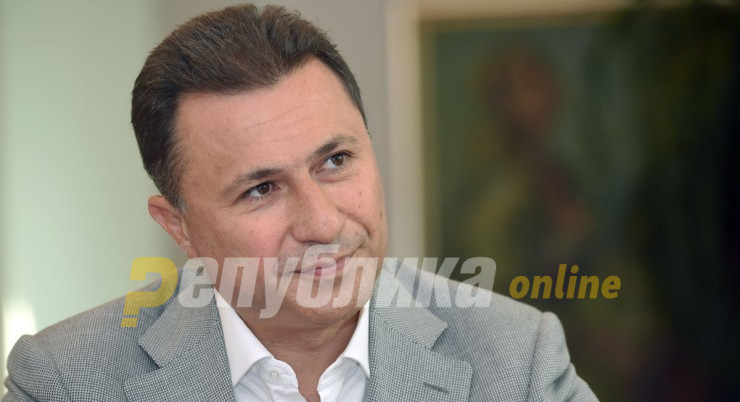One does not commit terrorism acts or violate the constitutional order with drums and whistles, former Prime Minister and VMRO DPMNE leader Nikola Gruevski wrote on Facebook on Monday.
Today’s court decision in the case called “Organizers of 27” is a result of the general atmosphere in the judiciary (and in the country). An atmosphere in which the judiciary lives the most difficult years for fear of punishment by the executive, dismissal and even persecution of judges if they do not pass verdicts in accordance with the politically created atmosphere of the government. Even if the government did not exert direct pressure on the court, which I believe it did, the already established political atmosphere and climate in the country is enough for all political trials, and especially for this one, he wrote.
Gruevski says that decision of the court to find the defendants in the so-called “Organizers of April 27” case guilty cannot be understood otherwise.
The defendants were already convicted in the very title of the case: “Organizers of April 27”. The title leaves no room for a different verdict, as it says in advance that the defendants are guilty, that they are the organizers, and the court is only expected to confirm that, Gruevski adds.
Moreover, he says that the alleged evidence of support for peaceful protests has been presented as evidence of organizing the storming and physical clashes in Parliament. It is unjust and this verdict will one day fall because it is unrealistic and forced under general or specific political pressure, said Gruevski.
They also allege that I organized and instructed the defendants by telephone to organize a violent entry into Parliament and beat MPs. Okay, but where is the evidence for that? Let’s just say it doesn’t matter what I say, whether I deny it or not. Let’s say that I should not be trusted, not even the defendants. So I ask: where is the evidence for that? That a member of my security team had a telephone conversation with his brother while I was giving a interview for the media in Austria? Okay. Where is the proof that my instruction was conveyed in that conversation or that I issued an order by phone? Please, no guesswork. In the judiciary, at least, it is judged by evidence, not assumptions. Because there is no evidence, and it cannot exist because it is untrue, the court accepted assumptions, said Gruevski.





Comments are closed for this post.